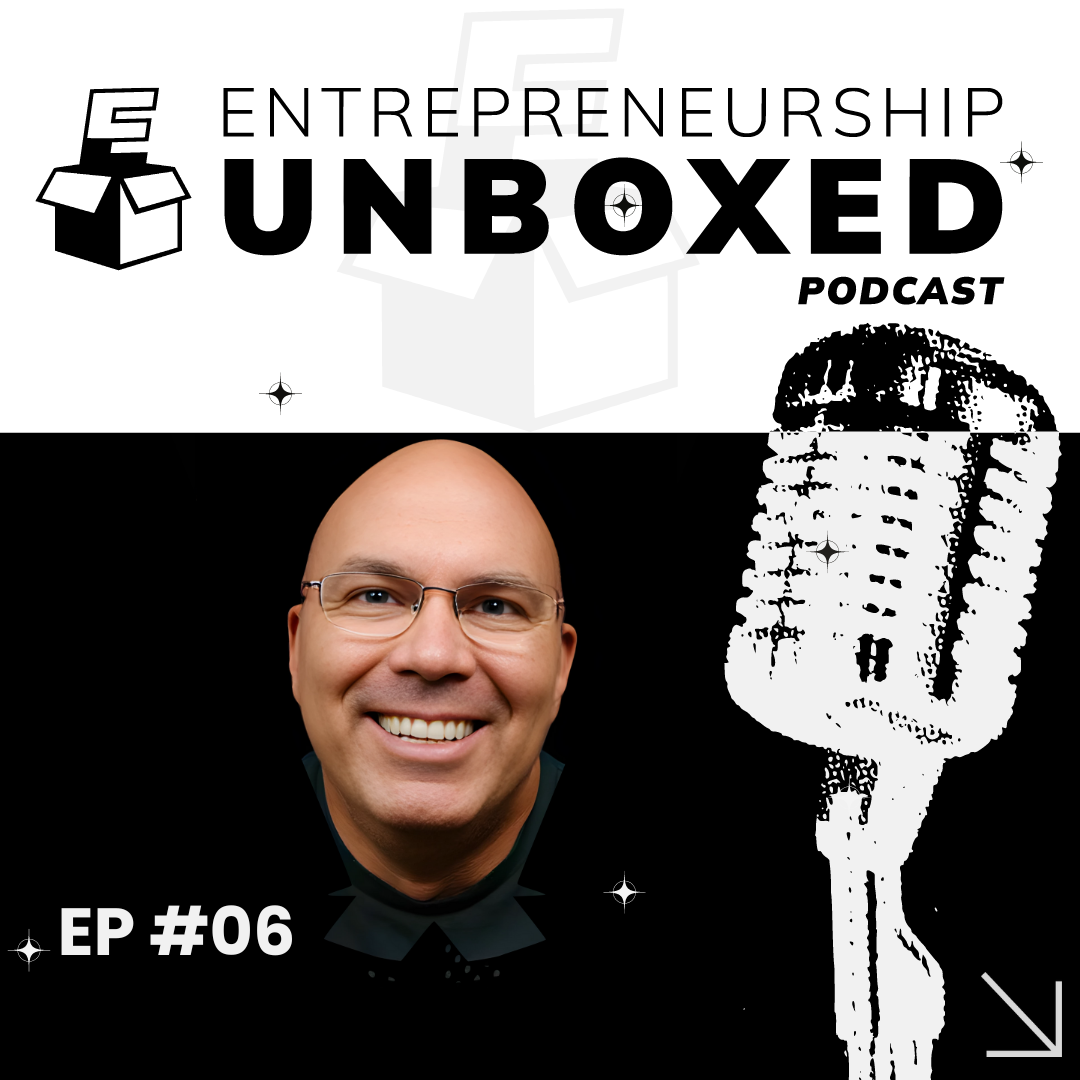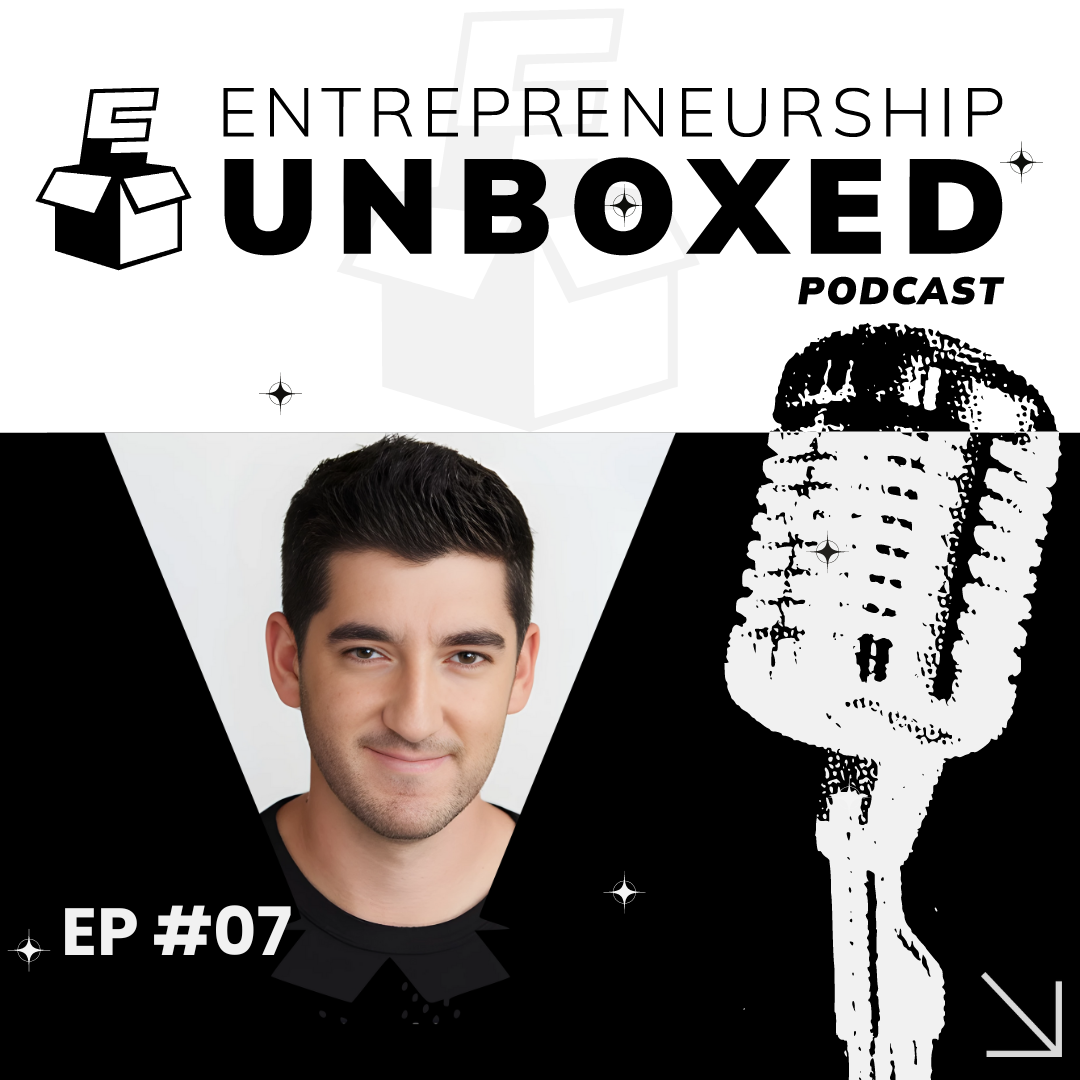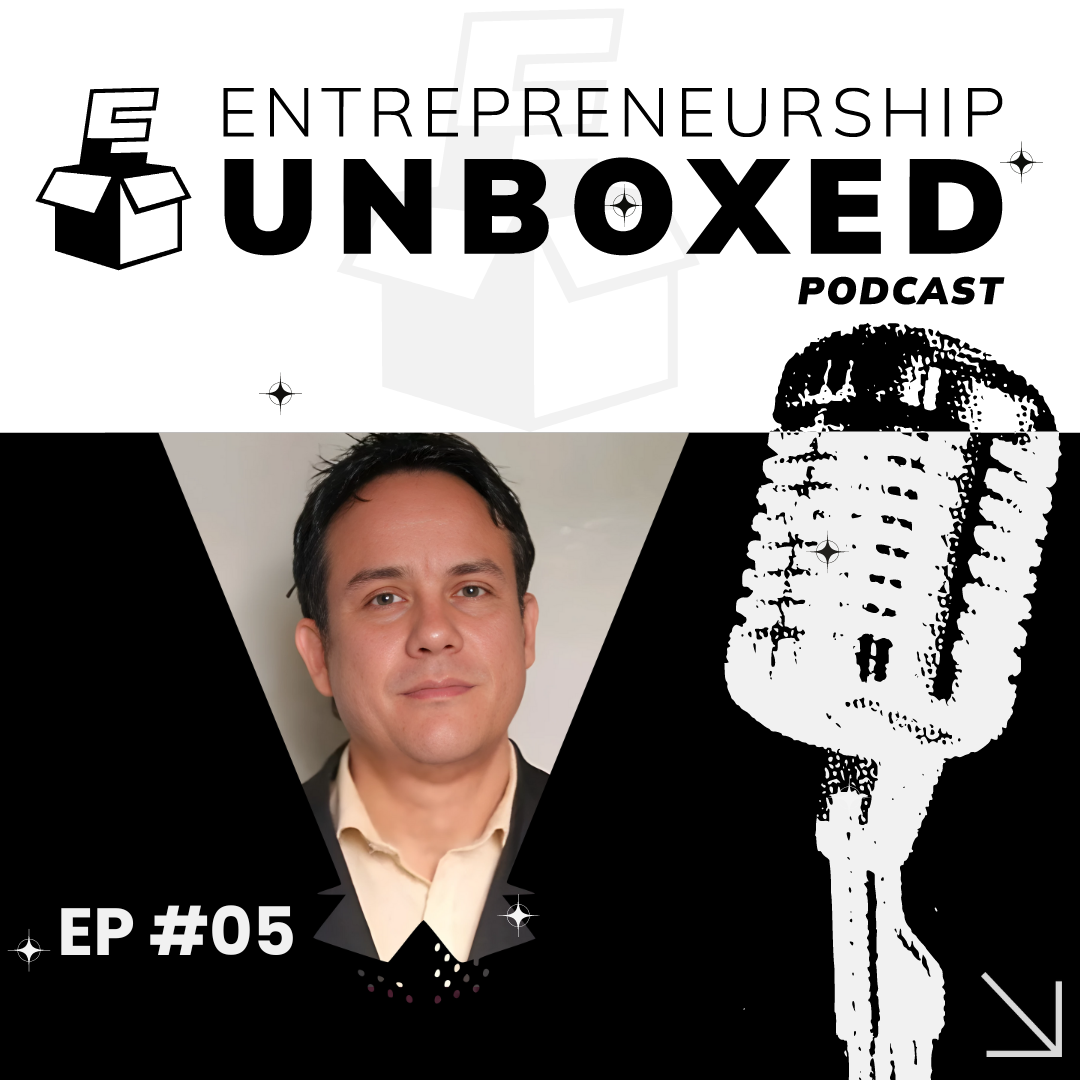
EPisode
6
Designing Success: Navigating the Creative and Business Worlds with Michael Janda
Join us on Entrepreneurship Unboxed as we sit down with Michael Janda, the creative powerhouse behind the award-winning agency Riser. Dive into an insightful conversation that spans the breadth of Michael’s illustrious career, from his early days at Fox to his triumphs in the agency world. Discover the strategies that propelled his business to the top of the Inc. 5000 list and the wisdom he imparts through his mentoring programs. This episode is a treasure trove for anyone looking to harness the power of creativity and entrepreneurship in the age of artificial intelligence
Unlocking the Entrepreneurial Journey: An Inspiring Conversation with Mike Janda
[00:00] Welcome to the show, Mike! Could you give us a quick rundown of your entrepreneurial journey and what inspired you to take the leap into starting your own business?
[01:15] Mike's Story: I was an accidental entrepreneur, too afraid to do it intentionally. My entrepreneurial journey began when I couldn't find a job during the tech industry recession in the early 2000s. With a background in web design and front-end coding, I started freelancing, which eventually grew into an agency. 22 years later, I'm a full-blown entrepreneur, constantly exploring new ventures. Once you fall in love with the entrepreneurship game, it's hard to turn it off - it's an exciting and fulfilling way to have a career.
[02:00] Key Takeaway: Mike's entrepreneurial journey was born out of necessity, but his passion for innovation and creativity led him to embrace the entrepreneurial lifestyle, even when it was unintentional at first.
[02:30] Your career has been a series of bold moves, from senior creative director at Fox to founding and selling your own agency, Riser. Could you share the pivotal moments that led to these significant changes?
[03:15] Pivotal Moments: When the tech bubble burst in the early 2000s, Fox's division was sold to Disney, and Mike's team went from 50+ people down to just 6. Facing the prospect of losing his job, Mike turned to freelancing to sustain his family's income. Years later, after building Riser into a successful agency with impressive clients like Disney and Google, Mike realized his true passion lay in mentoring and education. He sold the agency to focus on this new chapter, driven by a desire to have a greater impact on people's lives.
[04:30] Key Takeaway: Mike's career was shaped by both external forces, like the tech industry recession, and his own evolving passions and priorities. He was able to adapt and pivot, ultimately finding fulfillment in sharing his knowledge and experience with others.
[05:00] Under your leadership, Riser achieved impressive growth and profitability. What were the key strategies that contributed to sustaining such high profit margins in the competitive creative industry?
[05:45] Profitability Strategies: Mike emphasizes the importance of intentional pricing, understanding your market, and aligning your services with your clients' budgets. He cautions against guessing at pricing and instead recommends a methodical approach of analyzing costs, competitor pricing, and client needs. This allows you to price your products and services in a way that ensures profitability, rather than simply hoping the client will say yes.
[06:30] Key Takeaway: Profitability in the creative industry requires a strategic, data-driven approach to pricing, not just relying on intuition or guesswork.
[07:00] Working with high-profile clients like Disney and Google requires a certain level of trust and excellence. How did you build and maintain these valuable relationships over the years?
[07:45] Relationship Building: Mike learned that the key to building trust with clients, regardless of their size or reputation, is the same as building any relationship - through genuine connection and understanding that everyone is just a normal person trying to do their job well. He emphasizes the importance of not placing clients on a pedestal and instead focusing on creating a trusting, collaborative partnership.
[08:30] Key Takeaway: Successful client relationships are built on the foundation of treating everyone, from a startup founder to a Fortune 500 executive, as a fellow human being.
[09:00] As a leader, how did you Foster a culture of creativity and Innovation within your teams, and how has your approach evolved over time?
[09:45] Fostering Creativity: Mike's approach was to avoid stifling the creative and innovative people on his team. He gave them the freedom to explore their ideas and didn't over-direct or over-schedule their time. This allowed the creative energy to thrive within the agency.
[10:15] Key Takeaway: Empowering your team members' creativity and providing them the space to innovate is crucial for fostering a culture of innovation.
[10:30] Your books address topics not commonly taught in design school. What gaps in traditional education did you aim to fill, and why do you think these lessons are crucial for aspiring designers?
[11:15] Gaps in Design Education: Mike found that design programs often focused heavily on the technical skills, like color theory and typography, but neglected crucial business and communication skills. Things like creating proposals, managing projects, and presenting work to clients were not adequately covered. He recognized the need to equip designers with these practical, entrepreneurial skills to succeed in the real world.
[12:00] Key Takeaway: Bridging the gap between technical design skills and essential business/communication skills is vital for preparing designers for the realities of the industry.
[12:30] Many freelancer entrepreneurs struggle with fear and uncertainty. What is the most common fear you encounter, and how do you help your mentees overcome it?
[13:15] Overcoming Fear: The most common fears Mike encounters are the fear of not having enough clients or money, and the fear of failure. His advice is to trust that it will all work out, as the plan is not for you to fail. He encourages his mentees to have the courage to dream big and believe in their ability to achieve their vision, as their subconscious will then work to make it happen.
[14:00] Key Takeaway: Instilling a mindset of trust and belief in one's own potential is key to helping entrepreneurs overcome the paralyzing fear of failure.
[14:30] Scaling a business from a solo operation to an eight-figure agency is no small feat. What would you say is the first step in making such a significant leap?
[15:15] The First Step: The first step, according to Mike, is to have the courage to dream it and create a clear vision for what you want your business to become. He emphasizes that if you can't envision it, you'll never achieve it. Manifesting that dream and allowing your subconscious to work towards it is crucial for taking the leap to scale.
[15:45] Key Takeaway: Daring to dream big and having the courage to believe in your vision is the foundation for scaling a business to new heights.
[16:15] You've helped agencies and entrepreneurs achieve remarkable Revenue growth. Beyond financial metrics, how do you measure success in your mentoring programs?
[17:00] Measuring Success: Mike measures the success of his mentoring programs by the longevity of the relationships he builds with his clients. If they continue to come back to him for guidance, seeking his input on their decisions, he knows he has established a position of trust and value that goes beyond just the financial results.
[17:30] Key Takeaway: The true measure of success in mentoring is the depth of the relationship and the client's willingness to rely on the mentor's guidance, not just the numerical growth of their business.
[18:00] Your Global experiences and travels have undoubtedly shaped your approach to business and design. How has your Global Perspective influenced your work?
[18:45] Global Perspective: Mike's travels have shown him that talented, high-quality creative professionals can be found anywhere in the world, not just in the major hubs. This has broadened his mindset and allowed him to collaborate with exceptional individuals from diverse backgrounds, regardless of their geographic location. He's learned that the quality of work is not defined by where someone is based, but by their skills and passion.
[19:30] Key Takeaway: A global mindset allows you to tap into a wealth of talent and perspectives, breaking down geographic barriers in the creative industry.
[20:00] Where do you see the creative industry heading in the next decade, especially considering the rapid technological advancements?
[20:45] The Future of Creative: Mike believes the future of the creative industry will be more strategy-driven, with a focus on understanding the target audience and designing solutions that resonate with them emotionally. The technical skills of pixel-pushing and logo design will still be important, but they will need to be coupled with a deep strategic understanding of the client's needs and goals.
[21:30] Key Takeaway: Successful creatives in the future will need to blend their technical skills with strategic thinking and a customer-centric approach to design.
[22:00] What advice would you give to entrepreneurs and Founders who are trying to make their Mark in the creative industry today?
[22:45] Advice for Creatives: Mike's key advice is to have the courage to dream big and create a clear vision for your business. Dare to envision what you want your business to become, and then believe in your ability to make that vision a reality. This courageous mindset is the foundation for building a successful creative enterprise.
watch the full Interview: YouTube





